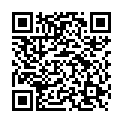|
|
|
| Module code: MAS-20-III4 |
|
|
2S (2 hours per week) |
|
5 |
| Semester: 2 |
| Mandatory course: yes |
Language of instruction:
German |
Assessment:
Term paper
[updated 14.06.2021]
|
Exam recurrence:
The information regarding exam recurrence is found within the exam policy of the study programme (ASPO).
|
MAS-20-III4 (P322-0188, P322-0578) Social Work, Master, ASPO 01.10.2020
, semester 2, mandatory course
MAS-20-III4 (P322-0188, P322-0578) Social Work, Master, SO 01.10.2023
, semester 2, mandatory course
|
30 class hours (= 22.5 clock hours) over a 15-week period.
The total student study time is 125 hours (equivalent to 5 ECTS credits).
There are therefore 102.5 hours available for class preparation and follow-up work and exam preparation.
|
Recommended prerequisites (modules):
MAS-20-I2 Life Situations, Social Inequalities and Social Cohesion: Social and Educational Regulation
[updated 30.10.2023]
|
Recommended as prerequisite for:
MAS-20-V1 Master’s Thesis
MAS-20-V2 Theory and Research Workshop
MAS-20-V3 Colloquium
[updated 30.10.2023]
|
Module coordinator:
Prof. Dr. Tamara Marksteiner |
Lecturer: Prof. Dr. Tamara Marksteiner
[updated 05.08.2020]
|
Learning outcomes:
The module introduces the different social and cultural pedagogical paradigms and concepts of analog and digitalized aesthetic/cultural education in the context of social work. After successfully completing this module, students will:
- justify the paradigms and concepts and evaluate their content,
- critically appreciate the influence of these on social work within the framework of social cultural work in the past,
- critically differentiate between current concepts of social work and cultural education,
- and transfer them to the challenges of an increasingly digitalized society,
- adopt a professional attitude toward cultural education concepts in an increasingly digitalized society,
- independently develop exemplary concepts for different, digitally supported forms of cultural social work for various fields of social work.
[updated 14.06.2021]
|
Module content:
- Historical overview of social and cultural educational paradigms and concepts of cultural social work since early forms of community work at the beginning of the 20th century
- Introduction and in-depth study of these concepts with respect to social and pedagogical considerations in the context of the social development of the Federal Republic of Germany.
- Introduction to the conceptual development of methods of action in cultural social work in the current context of an increasingly digitalized society
- Application of these considerations to case specifics of social work
- Application of these considerations to cooperations with artists in various fields of social work.
[updated 14.06.2021]
|
Teaching methods/Media:
- Information from the lecturer
- Recommended reading
- Exercises within the framework of the seminar
- Experimenting with selected cultural methods (visual arts, film, dance, theater, etc.) with digital elements
- Guest lectures
- Independent study
- Follow-up work and in-depth study using additional literature
[updated 14.06.2021]
|
Recommended or required reading:
Literature will be updated regularly and therefore communicated in the seminar and seminar schedule.
[updated 14.06.2021]
|


